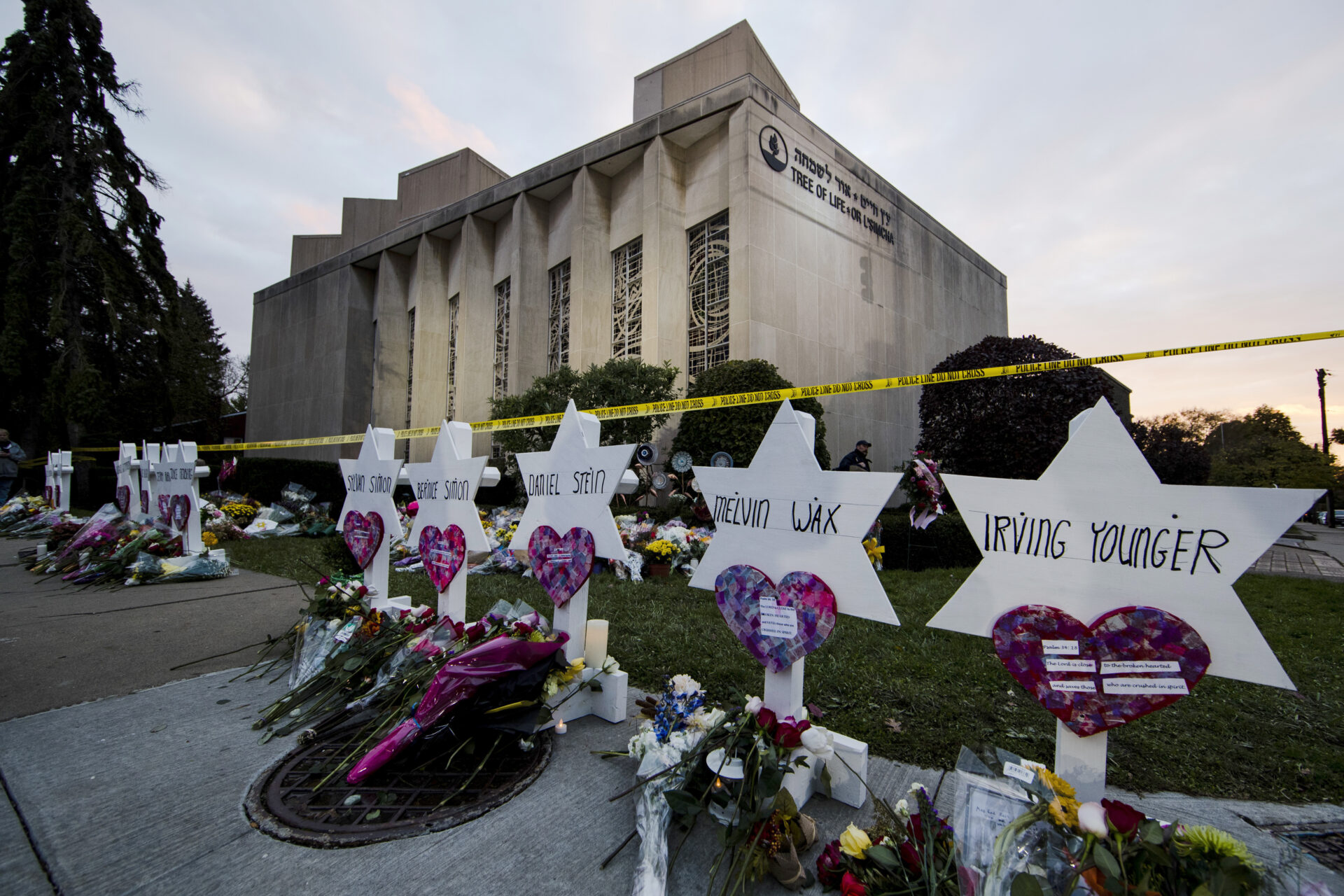A self-proclaimed white supremacist pleaded guilty Tuesday to making online threats toward the jury and witnesses at the trial of a man who killed 11 congregants at a Pittsburgh synagogue, the U.S. Justice Department said.
As part of his plea agreement in federal court for West Virginia’s northern district, Hardy Carroll Lloyd admitted that the actual or perceived Jewish faith of the government witnesses and victims in the trial of Robert Bowers prompted him to target the jury and witnesses.
Lloyd, 45, of Follansbee, West Virginia, faces more than six years in prison if the plea agreement is accepted by the court.
The Justice Department described Lloyd as a self-proclaimed leader of a white supremacy movement. Prosecutors said Lloyd, who was arrested on Aug. 10, sent threatening social media posts and emails along with comments on websites during Bowers’ trial. Lloyd pleaded guilty to obstruction of the due administration of justice.
Bowers was sentenced to death last month after a jury determined that capital punishment was appropriate.
“Hardy Lloyd attempted to obstruct the federal hate crimes trial of the deadliest antisemitic attack in American history,” Attorney General Merrick Garland said in a statement. “His guilty plea underscores that anyone who attempts to obstruct a federal trial by threatening or intimidating jurors or witnesses will be met with the full force of the Justice Department.”
In May 2022, the Texas Department of Public Safety offered a cash reward of up to $1,000 for information leading to Lloyd’s arrest after he allegedly posted a series of comments online threatening to carry a firearm onto the Texas Capitol grounds and challenge any police officer who tried to “take enforcement actions” against him. A statement from the department said Lloyd was a convicted felon.
